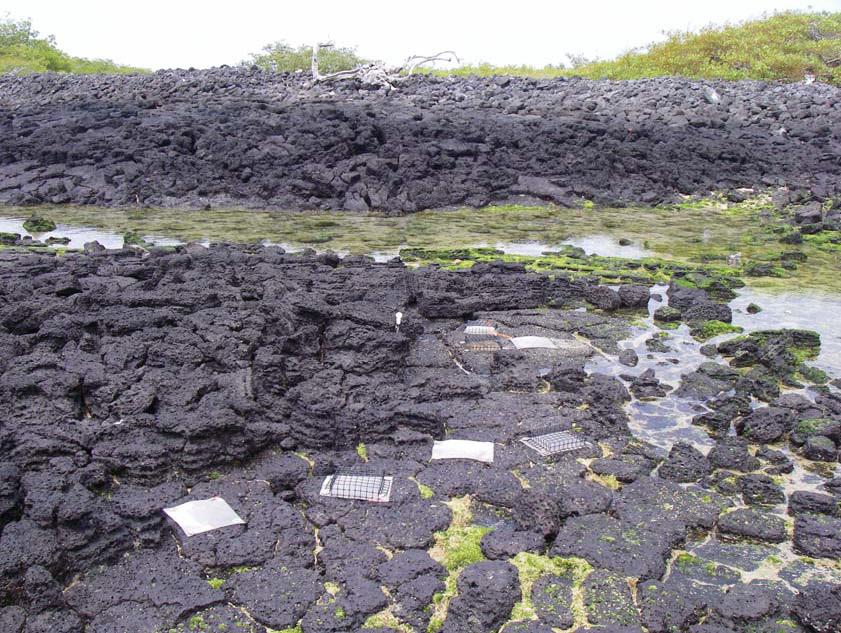Luis Vinueza
Other projects
18 Apr 2006
Conservation Ecology of Galapagos Rocky Shores in the Face of Human Disturbance and Climate Change I
This project aims to understand the ecological role of consumers on marine algae and how their ecological role is modulated by temperature and nutrient levels.

Currently the oceans are experiencing multiple stressors derived directly and indirectly from human activities. The Galapagos Islands are particularly vulnerable to these stressors due to their isolation from the mainland and the high level of endemism of its unique flora and fauna. Past El Niño events have already diminished local populations of many endemic species, including marine iguanas, penguins, cormorants, sea lions, algae, and sea stars among other organisms. These reductions seem to be linked to the dramatic decline in primary productivity and high temperature experienced during El Niño events. While some populations have recovered after these perturbations, the capacity of populations to rebound is likely affected by other anthropogenic impacts and by a suit of factors associated with human-induced climate change, among them, warmer waters, more acidic oceans, higher sea levels and the alteration of nutrient cycles. However, there is little understanding of how multiple stressors will affect ecosystem structure and function. My research seeks to understand how the role of consumers (predators, grazers) is modulated by large scale oceanographic processes.
Through a series of manipulative experiments I will study the role of grazers, temperature and productivity on the diversity of marine algae:
1. By selectively removing different groups of consumers I will reveal both the ecological role of marine iguanas, fish and crabs and the likely consequences of their extinction on ecosystem structure and function.
2. By using black (“hot”) and white (“cool”) plates that serve as settlement substratum for algae I will understand how temperature and grazing interact to affect primary production.
3. By manipulating nutrients and grazing I will understand if algae are nutrient limited and if grazers can compensate for the addition of nutrients in the system.